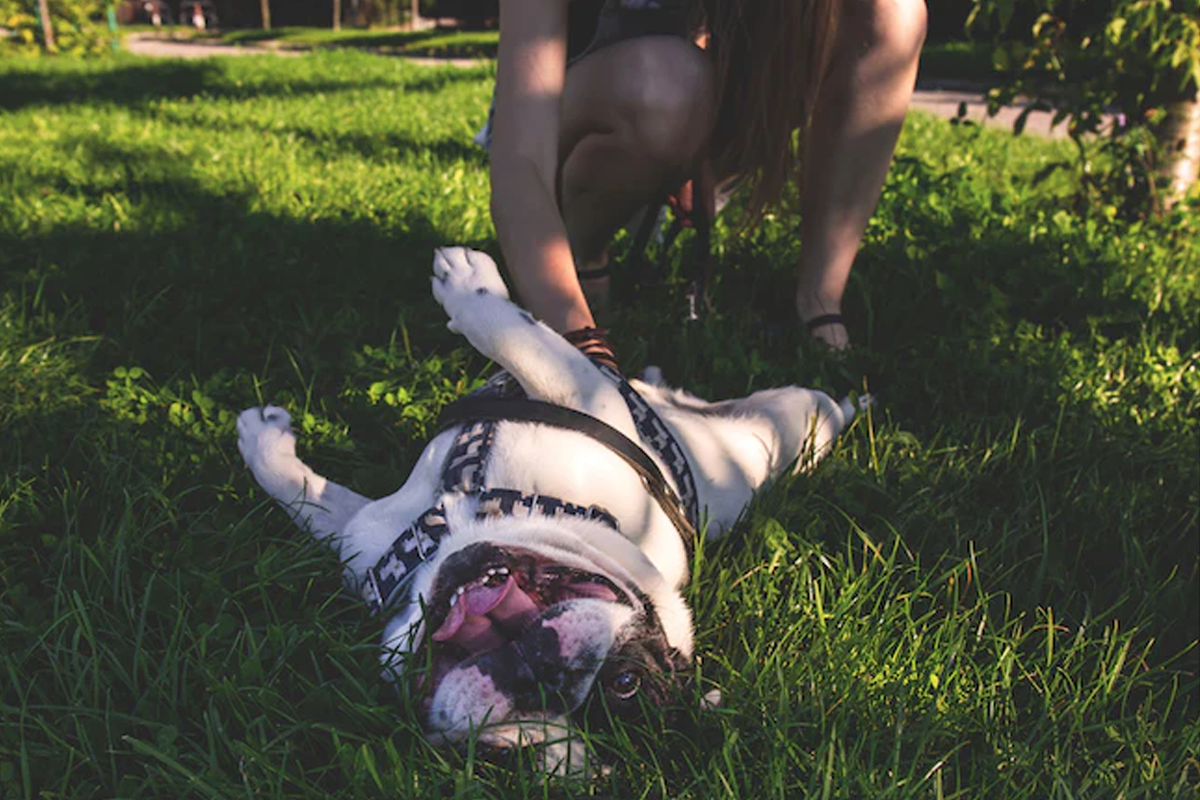So how do you tell when your dog is in pain? It may seem obvious, but that is not always the case. Most dogs have a high threshold for pain, and since they can’t complain like people do, it is sometimes easy to miss the signs that they are in pain. Especially during the early stages.
One of the most heart wrenching things is seeing your dog limping or unable to sit down easily or unable to get up. These signs are associated with severe pain. However, what are the signs that you can look for at an earlier stage and incorporate some preventative measures?
A couple of things to watch for in your dog’s behavior:
- Just simply slowing down, maybe wanting to walk instead of run.
- The dog shortening their own walks instead of you shortening the walk. When a dog starts sitting down in the middle of a walk, that’s a sign of pain.
- Simple stiffness getting up, and stiffness sitting down.
- Sitting to one side or the other is often a sign of pain.
- Another thing that people often miss is very subtle hunching or rounding of the lower back.
And then some people say, well, my dog isn’t making any noise. So if he’s limping, he must not be in pain, right? Well, if you’re limping, you’re in pain. Your dog won’t make a vocal noise, but limping equals pain.
- Awkward movements is often associated with joint pain.
- Refusal to climb stairs.
- An aversion to petting or touching, especially in the joint areas.
- Swelling in the joints.
- Problems getting up on the couch or bed, or getting in the back of the SUV.
- Not wanting to play as long at the dog park.
- Bad temper (after all, who feels good when they are in pain?)
Tune in to your dog’s behavior and pay attention to these signs. The earlier you can identify pain, the sooner you can do something to help your dog. Remember, not all pain is age related. Your dog might be suffering from an injury, disease, or other serious health condition. If the onset of the symptoms is sudden and severe, take your dog to see a veterinarian for a proper diagnosis.
If your dog has arthritis or suffers form hip or joint pain caused by inflammation or injury, consider VetSmart Formulas Critical Joint Relief. This is an all-natural, veterinarian-strength formula that is helping 1,000's of dogs. Click HERE to learn more.











